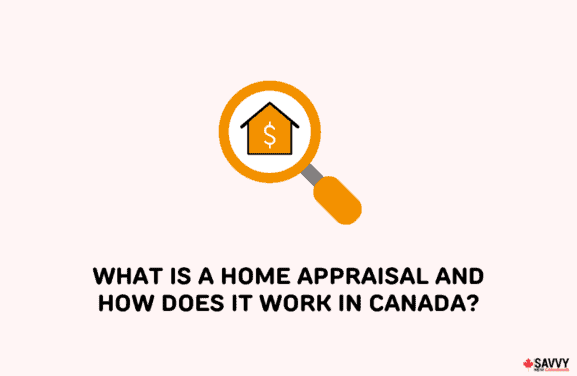If you take out a mortgage in Canada and decide to pay it off early, don’t be surprised if you face prepayment penalties.
When you enter into a mortgage contract, there are clear rules about how much you should pay back and when. While you might assume that paying off your mortgage early is good, this is not always the case.
However, that doesn’t mean you should never repay your mortgage early.
Read on to learn more about paying off your mortgage early, the penalties you might face, how much you may be charged, and when it could be a good idea.
Key Takeaways
- Paying off your mortgage early can lead to prepayment penalties.
- How much you pay will depend on the time left on your term, your interest rate, and how the penalty is calculated.
- You may have a prepayment privilege, allowing you to pay off some of your mortgage early without penalties.
What Is a Prepayment on a Mortgage?
A prepayment on a mortgage is simply any additional payment you make that is more than you have agreed.
When you take out a mortgage, you sign a contract determining repayment terms. If you pay early, this affects the lender because they end up missing out on interest payments.
As such, if you overpay your mortgage, you could face prepayment penalties.
Can You Pay Off Your Mortgage Early?
When it comes to making prepayments on mortgages, whether you can pay off your mortgage early or not depends on the lender and the type of mortgage you have.
An open mortgage means that you are free to make additional payments without facing any penalties. The catch is that interest rates are higher with open mortgages.
A closed mortgage is more common, and the interest rates are usually lower. However, you don’t have the flexibility to make additional payments.
If you have a prepayment privilege, you may be able to pay off some of your mortgage early, even if you have a closed mortgage. We will take a closer look at this later.
Prepayment Mortgage Penalties in Canada
When you pay off your mortgage early, either in part or in full, you may have to pay a prepayment penalty.
This helps the lender recover the money you would have paid them in interest if you had continued on the agreed payment schedule.
These penalties can be very expensive, potentially costing thousands of dollars. But the exact cost will be influenced by the following:
- The amount you are paying off early
- The length remaining on your term
- The interest rate
- How the fee is calculated
There are typically two ways these fees are applied.
The first is where the mortgage penalty is equal to three months of interest. This is usually the formula used for variable-rate mortgages.
The other fee is the interest rate differential (IRD) penalty. This is usually applied for fixed-rate mortgages unless the three months of interest is greater.
What Is the IRD Penalty?
The IRD penalty is usually more expensive than paying a penalty equal to three months of interest.
The calculation can be complicated, and different lenders can use different formulas. However, it is generally based on the difference between the interest rate you are paying on your mortgage and the rate the bank could charge if it lent the money for the rest of the term.
Let’s say you originally took out a five-year mortgage of $300,000 with an interest rate of 5%. Now you want to refinance, and you have three years remaining.
Your lender’s current three-year mortgage has a rate of 3.5%, meaning there is a difference of 1.5% between this and your interest rate.
This means your lender is losing $4,500 per year, or $13,500 for the remaining three years, so this would be the penalty.
Always determine exactly how much you will owe in penalty fees before making any decisions. You can also use a mortgage penalty calculator to help you.
What Is a Prepayment Privilege?
As mentioned earlier, your mortgage may come with a prepayment privilege. This is a set amount that you can pay toward your mortgage in addition to your regular payments without facing a prepayment penalty.
It’s often a percentage of your original mortgage, and you can usually make regular payments or lump sums up to that amount.
For example, you may be able to increase your regular payments by up to 15% of the mortgage amount or make a lump-sum payment of up to 15% each year.
Usually, you cannot carry a repayment across the years. So, if you don’t make an additional payment one year, you are still restricted to the same percentage the following year.
Check your mortgage contract for full details of any prepayment privileges you may have.
How to Avoid a Prepayment Penalty
No one wants to face a mortgage payment penalty, and the easiest way to avoid paying one of these is to stick to the terms of your mortgage agreement.
If you have a prepayment privilege, make sure you know exactly how much you can make each year in additional payments without facing a penalty and stay below this amount.
Other options may include:
- Choose a shorter mortgage term if you want more freedom to switch sooner.
- Take out an open mortgage if you think you will pay it off early or you simply want the freedom to do so.
- Wait until the end of the term when you can make a lump-sum payment without any penalties.
Featured Mortgage Offer
Neo Mortgage

On Neo Financial’s website
- Compare mortgage rates across several lenders
- Access to competitive rates and online applications.
- Available Canada-wide
- Accepts a wide range of credit scores
Should You Pay Off Your Mortgage Early?
It can sometimes be a good idea to pay off your mortgage early to reduce your debts, but it depends on your situation.
The idea of reducing your mortgage debt can sound good. However, it’s important to work out how much you will actually end up saving.
If you want to pay off your mortgage early to save money, you should calculate the total costs involved, considering any prepayment penalties.
If the penalties eat into your savings too much, you could end up paying more money, defeating the purpose.
As such, it’s always a good idea to consider all the factors and determine how much you will actually save before making a decision.
FAQs
It depends on your mortgage and the rules set by your lender. For an open mortgage, you won’t face any prepayment fees. For a closed mortgage, you may have a prepayment privilege so you can pay up to a certain amount without penalties. Otherwise, you will normally pay three months of interest or the IRD penalty.
You may face prepayment penalty fees for paying off your 30-year mortgage early. However, this depends on your lender and your mortgage.
It may be a good idea to pay off a mortgage in a single lump sum, but it depends on your circumstances. You should be aware of any prepayment penalties you may incur before making a decision and use these in your calculation to determine the best option for you.
There is no set age when you should have your house paid off, but it is typically considered a good idea to pay off your mortgage in your 50s. However, the earlier you can pay it off, the better.
Related:



